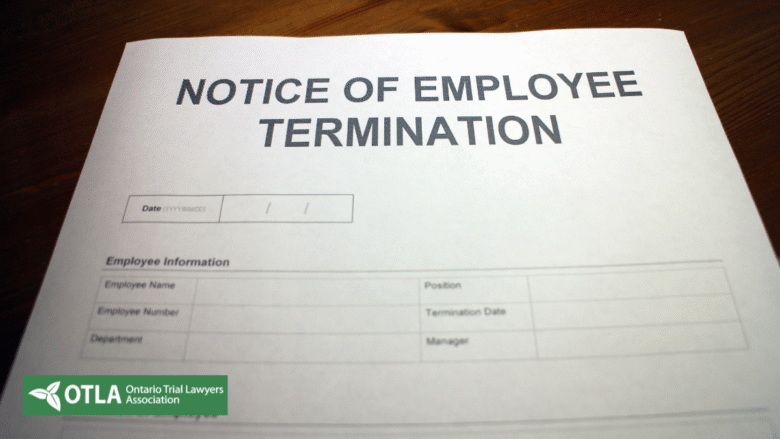Background
InLischuk v. K-Jay Electric Ltd, 2025 ABKB 460, the Alberta Court of King’s Bench awarded the plaintiff damages for a notice period of 26-months and found that “exceptional circumstances” existed to exceed the “rough upper limit of 24 months.”
The Plaintiff’s Employment
The plaintiff, Mr. Lischuk, began working for K-Jay Electric Ltd (K-Jay) when he was 23 years old. Mr. Lischuk started as a general labourer and over the years worked his way up in the company, becoming the general manager as well as a shareholder. As a result of K-Jay deciding to make changes to the direction of the company, including a change in management styles, Mr. Lischuk’s employment was terminated without cause. At the time of his termination, he was 58 years old and had worked for K-Jay for 34 years.
Exceptional Circumstances
At trial, K-Jay maintained that Mr. Lischuk was entitled to 24 months’ notice while Mr. Lischuk argued he was owed 26 months’ notice. The court confirmed that although there is no “absolute upper limit on reasonable notice, ‘exceptional circumstances’ are generally required to support a notice period that exceeds 24 months.” In assessing Mr. Lischuk’s reasonable notice period, and exceptional circumstances, the court relied heavily on case law from Ontario.
Citing several decisions from Ontario, the court noted that exceptional circumstances have included:
- An employee who, along with their age and position of responsibility, has worked for only one employer for the entirety of their career;
- An employee who has been with the same employer for many years such that it impacts their employability. For example, a potential employer may view the individual as set in their ways and not adaptable to change;
- An employee who has specialized skills that are tailored to and limited by their very specific workplace experience; and
- Where the termination of an employee amounts to a forced retirement.
Summarizing the above, the court held that “exceptional circumstances” arise where an employee begins their career with an employer at a young age and “is terminated near potential retirement age, after becoming a key or highly specialized employee.” On termination, the employee has limited prospects of securing comparable employment given their age and specific skills such that they are effectively forced into retirement.
The court held that the combination of the Bardal v. Globe & Mail Ltd., 1960 CanLII 294 (ON SC) factors as applied to Mr. Lischuk gave rise to exceptional circumstances. The court stated that Mr. Lischuk did not have a university degree, his only other work experience was as a labourer in his early twenties and given that he spent his entire working career with K-Jay, his termination was akin to a forced retirement. The court continued stating that Mr. Lischuk did not have many transferable skills and has specialized in one field of work such that finding another executive level position would be difficult. The court also considered the fact that Mr. Lischuk’s “old school mentality”, noted as a factor in his termination, “would be difficult to sell to potential employers… others in the industry would be aware of his management style.”
Other Damages
Mr. Lischuk’s damages for his reasonable notice period included vacation pay in the amount of $29,308.00 and 26-months pay (base salary, Christmas bonus and benefits) in the amount of $553,895.33. The court also held Mr. Lischuk was entitled to his annual bonuses over the notice period. The court held that Mr. Lischuk would have been entitled to receive payments from K-Jay’s annual bonus pool during the reasonable notice period and that the Unanimous Shareholders Agreement did not remove or limit his common law entitlement to the bonus. Significantly, the amount of Mr. Lischuk’s bonus over the notice period amounted to $948,626 for a total damage award of $1,531,829.33.
Conclusion
Lischuk v. K-Jay Electric Ltd offers further guidance from the courts on when it is appropriate to exceed the “rough upper limit” of 24-months reasonable notice and the facts which give rise “exceptional circumstances.” Despite the court noting that “the rarity of cases providing for reasonable notice in excess of 24 months in the last 60 plus years speak to the caution that a court should exercise about exceeding this rough upper limit,” Lischuk v. K-Jay Electric provides a persuasive blueprint for employee counsel to follow.

